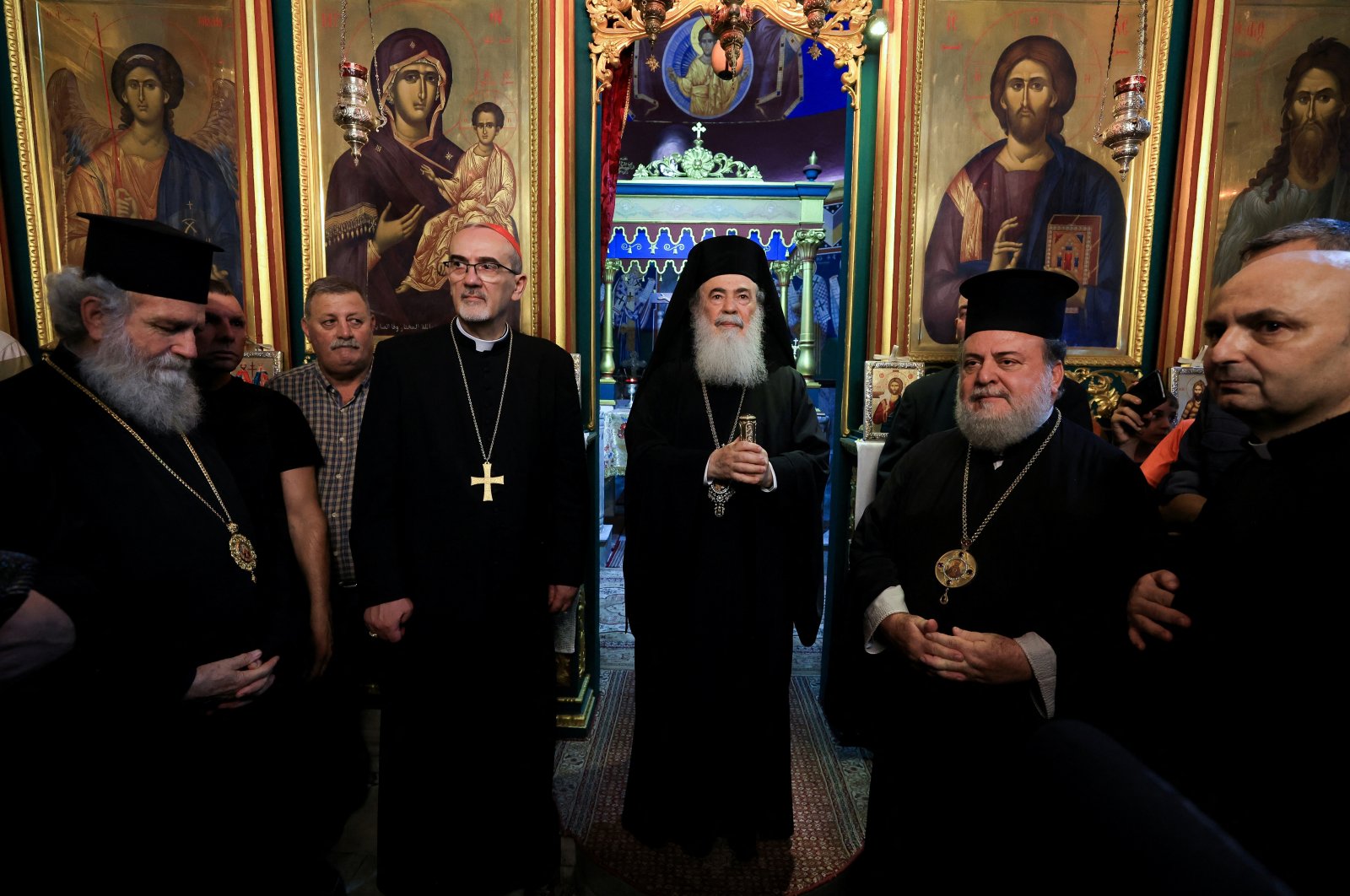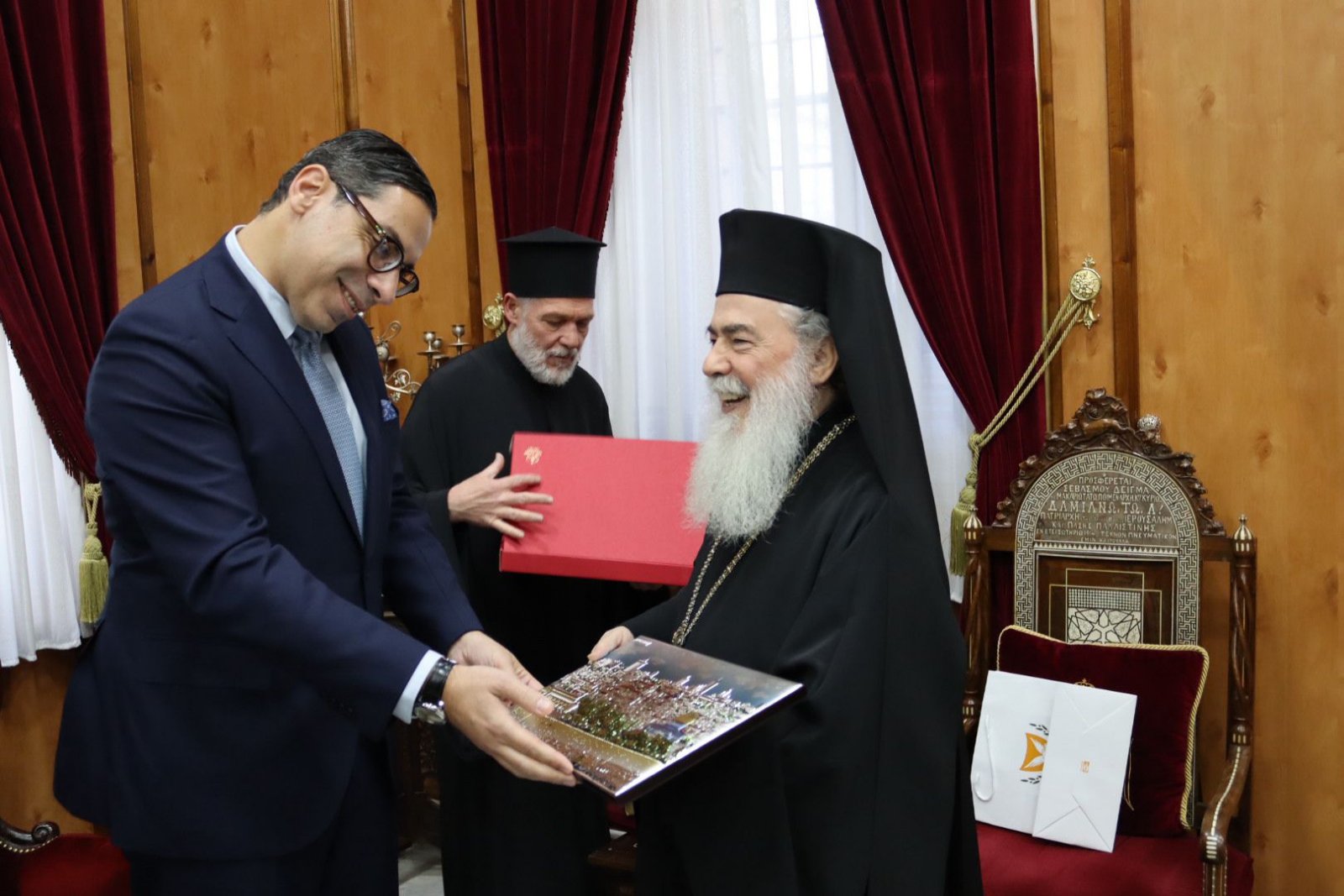Jerusalem Municipality Freezes Patriarchate"s Accounts, Threatening Salaries of Clergy and Staff
The Jerusalem Municipality has taken a controversial step by freezing the bank accounts of the Jerusalem Patriarchate, demanding that the Orthodox Church pay taxes reminiscent of those imposed during Ottoman rule. This unprecedented move has raised significant concerns regarding the financial stability of the Patriarchate, which now faces the prospect of failing to meet payroll obligations for its clergy, educators, and staff. The implications of this decision are profound, affecting not only the church"s operations but also the broader religious community in the region.
Background & Context
The Jerusalem Patriarchate, a key institution within the Orthodox Christian community, has historically enjoyed a unique status in Jerusalem. Its roots trace back to the early days of Christianity, and it has played a crucial role in the spiritual and cultural life of the city. However, this recent action by the municipality reflects a shift in the dynamics of church-state relations in Israel.
For decades, the Patriarchate has operated under a tax-exempt status, a privilege that has allowed it to support its religious and educational missions without the burden of taxation. However, the current political climate has prompted the municipality to reevaluate this arrangement, echoing the taxing practices of the Ottoman era when various religious institutions were subjected to levies. This historical context adds layers of complexity to the current situation, as it raises questions about the rights and responsibilities of religious institutions in modern Jerusalem.
Key Developments
As a direct result of the freeze on its bank accounts, the Jerusalem Patriarchate has announced that it is unable to disburse salaries to its clergy and staff. This includes teachers and administrative personnel who play vital roles in the church"s educational and community outreach programs. The Patriarchate has expressed deep concern over the financial strain this situation imposes on its ability to function effectively.
In a statement, a spokesperson for the Patriarchate emphasized the urgency of the matter, noting that “the freezing of accounts not only undermines our operational capabilities but also threatens the livelihoods of many individuals who are dedicated to serving the community.” The church has called for dialogue with municipal authorities, seeking a resolution that respects its historical status and ensures the continuation of its mission.
\n\n
Image for Jerusalem Municipality Freezes Patriarchate"s Accounts, Threatening Salaries of Clergy and Staff
Broader Impact
The freezing of the Patriarchate"s accounts could have significant repercussions beyond the immediate financial difficulties faced by the church. Experts suggest that this move may exacerbate tensions between religious and secular authorities in Jerusalem, a city already marked by complex interfaith relations. The Orthodox Christian community, which has a rich history in the region, may feel increasingly marginalized if such policies continue.
Moreover, the situation raises broader questions about the relationship between state and religion in Israel. As previously reported, there has been a growing discourse surrounding the role of religious institutions in public life and their financial obligations. This incident could serve as a catalyst for further discussions on the rights of religious organizations, their financial independence, and the historical precedents that shape current policies.
What"s Next
The next steps for the Jerusalem Patriarchate involve seeking legal advice and possibly pursuing negotiations with the municipality to resolve the financial impasse. The church is likely to engage in discussions aimed at reinstating its tax-exempt status while addressing the municipality"s concerns about financial accountability.
As this situation unfolds, observers will be closely watching for any potential changes in policy that could impact not just the Orthodox Church but also other religious institutions in the region. The implications of this case could set a precedent for how religious organizations navigate their financial obligations in a changing political landscape.
It remains to be seen how this conflict will be resolved and what it means for the future of religious institutions in Jerusalem, a city that stands at the crossroads of faith, culture, and politics.

Image for Jerusalem Municipality Freezes Patriarchate"s Accounts, Threatening Salaries of Clergy and Staff




![[Video] Pope Leo XIV condemns anti-Christian violence in Nigeria, Bangladesh, and Damascus](/_next/image?url=%2Fapi%2Fimage%2Fthumbnails%2Fthumbnail-1768006244320-mmtpte-thumbnail.jpg&w=3840&q=75)


![[Video] Gunfire between Iraqi security forces and Sadr militias in Baghdad](/_next/image?url=%2Fapi%2Fimage%2Fthumbnails%2Fthumbnail-1768343508874-4redb-thumbnail.jpg&w=3840&q=75)
